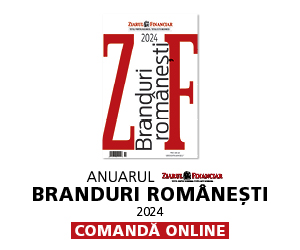The risk of inflation climbing to 8.5%, which the National Bank of Romania is still officially hesitant to accept, a trade deficit 84% higher in the first two months of 2005 than a year ago and foreign currency lending growth of more than 57% in the first months of the year - this is the context in which Romania will resume negotiations with the IMF during an official delegation to Washington on April 14.
Government sources say the situation will only lend strength to the Fund's decision to impose a safeguarding clause on Romania without which it will be impossible to conclude the agreement: the government needs to commit to either raising VAT or the flat tax if it fails to collect revenues sufficient to keep the deficit to a minimum, which will alleviate inflationary pressures and foreign slippages.
For the time being, government officials do not seem to be overly inconvenienced by the clause, being as they are convinced there will be no reasons for it to be applied. This remains to be seen. In the same context, the IMF requests are also resurfacing which call for new administrative measures to be adopted to control the lending boom, especially on the foreign currency segment. The negotiations scheduled to take place in two weeks will this time be headed by Finance Minister Ionut Popescu, with the assistance of NBR Governor Mugur Isarescu.
One of the most visible risk factors at the moment is the increase of inflationary pressures and the continuing pronounced trend of deterioration to the trade balance, which will show in a current account deficit already 55 million euros higher in January 2005 than in January 2004. In the circumstances, the NBR is undecided whether to announce a risk margin with regard to achieving the inflation target of 7%. Given the increasing expectations in respect of inflation increases, both by analysts and business people, NBR vice-governor Cristian Popa, the central bank official responsible for monetary policy, has begun talking about the possibility of events occurring that "could be harder to counteract by the central bank." For this reason the inflationary fluctuation corridor could be wider, up to plus/minus 1.5%.
Add to this the statements by NBR Governor Mugur Isarescu, who said the central bank would continue to use both the exchange rate and reserves and lending volume as disinflation instruments. Which means that given the government's inability to reduce the public spending further without driving the budget sector towards generating arrears, the task of dampening inflation is left again to NBR monetary instruments, although this will mean sacrificing the foreign trade balance in the end.
The wave of price increases is tending to take on alarming proportions, even with an 8.5% inflation target. Petrom announced an increase in the price of petrol of 1,600 ROL/litre and 1,700 ROL/litre for diesel, following the excise hikes for petroleum products that are to come into force as of April 1. razvan.voican@zf.ro
Pentru alte știri, analize, articole și informații din business în timp real urmărește Ziarul Financiar pe WhatsApp Channels








































